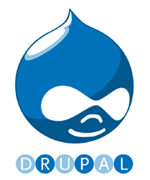A Mash-up in the Web sense is when you grab a bunch of disparate API’s, say Google Maps and live crime statistics and come out with something whose sum is greater than that of its parts (in this example
chicagocrime.org). A Wrap-up is my term for the grouping of hyperlinks and tags with a supporting wiki-based summary of the ideas, issues and decisions reached within the identified dataset. In both cases the outcome is of more inherit value than its component pieces. Yet without the individual value of the compontents the end result lacks credibility or interactivity, making the concept as a whole less appealing or conclusive.
As I said in my last post a major issue we were facing in the Reasonate testing was quickly gaining an global overview of a project or individual’s progress without having to read and understand numerous scrapbook-like blog postings. Just to complicate matters these posts are often related to, but not explicit in their overall meaning or relationship to the design’s end goals. Or how I put it more pragmatically last time round:



